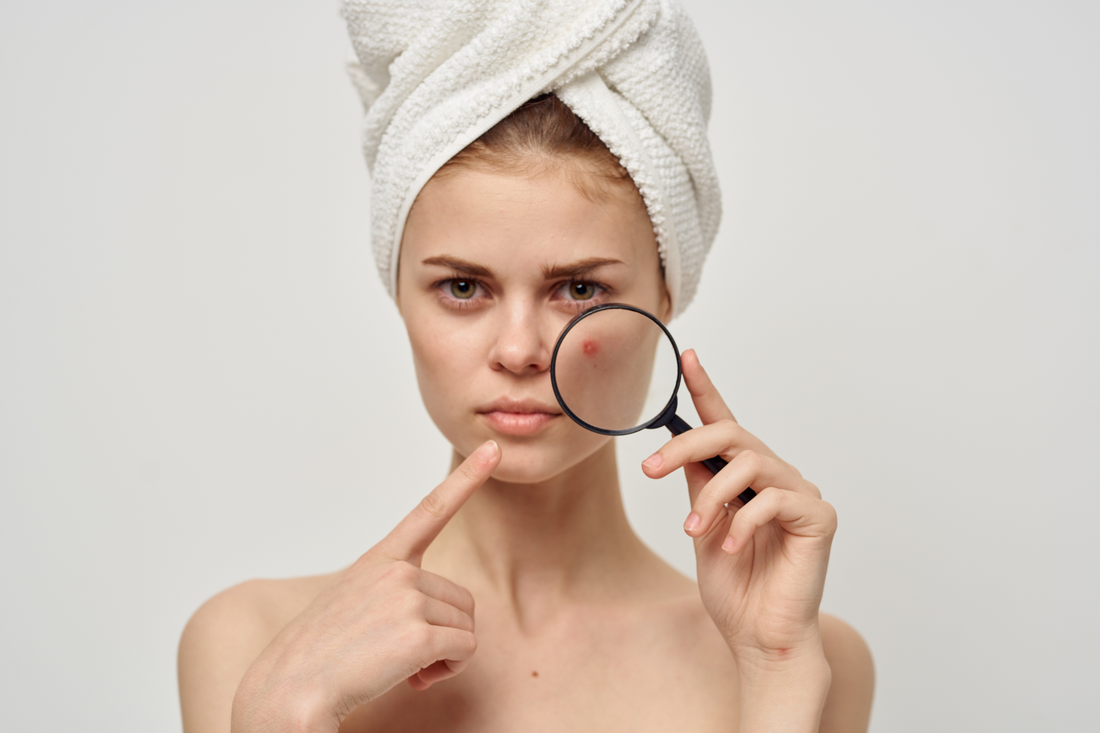Did you know that acne is the most common skin condition in the United States? 85% of young adults have experienced acne but acne can pop up during any stage in life.
If you have had persistent acne, you will know how much of a challenge it can be to try heal your skin.
While there’s no foolproof way to rid your skin of acne forever, you can reduce your breakouts and help keep your skin as healthy as possible.
Read on for 5 tips to prevent pimples and be on your way to clearer skin.
1. Wash your face properly
Most pimples appear on the face. Scientists have identified a bacteria called Propionibacterium acnes that can cause acne breakouts. Propionibacterium acnes causes inflammation when it turns sebum, the oil naturally found on the skin, into fatty acids.
The key to preventing pimples is to remove excess oil, dirt and sweat daily, however, washing your face too much may make acne worse.
According to Anar Mikailove: “When we strip our skin of its natural sebum with excess washing, it actually causes the skin to produce even more oil in order to rebalance your skin, thus, washing your face excessively can indeed make acne worse, as does using cleansers or astringents that dry out the skin too much.”
As a general rule, you’ll want to wash your face no more than twice a day.
Mikailove suggests using cleansers that are sulfate-free, fragrance-free, and gentle enough for twice-daily use. Skip the harsh physical scrubs or drying foaming cleansers.
To wash your face:
- Wet your face with warm (not hot) water.
- Apply a mild cleanser in a gentle, circular motion using your fingers, not a washcloth. We recommend you try using Smart Skin Liquid Face Wash.

View product - click here
Liquid gel wash that gently and effectively removes dirt and lifts impurities. Helps remove spots and blemishes, and leaves skin feeling soft and fresh.
Great for use in combating acne.
2. Know your skin type
Having knowledge of what skin type you have will help determine which products to use and which to avoid. You can use the following framework to identify your skin type:
- Dry. Your skin often feels flaky and tight.
- Oily. Your skin tends to look shiny by the end of the day.
- Combination. You have both dry areas and oily areas. The oily area is usually the T-zone, or your forehead, nose, and chin.
- Sensitive. Your skin reacts easily to products and is prone to rashes, discoloration, or irritation. You can have sensitive skin along with any of the above skin types.
In general, people with oily skin are more prone to acne.
3. Use a good moisturizer
Moisturizers help skin stay hydrated, which makes a big difference for acne-prone skin. If your skin gets too dry, it will produce oil (sebum) to counterbalance the dryness. And, as noted above, an excess of sebum can cause pimples.
We recommend trying the Smart Skin tissue refining gel.

View product - click here
This is a light textured gel formulated to refine and nourish dry skin, leaving it feeling soft and rejuvenated. Vitamin E repairs epidermal cell damage caused by irradiation. As an anti-oxidant it inhibits the formation of lipid peroxidation responsible for wrinkles. Excellent is assisting with healing problem skin types.
Excellent alternative to oil.
We also have an amazing acne skin bundle available:

View product - click here
Perfect combination of products for acne prone skin
4. Stay hydrated
If you’re dehydrated, your body may signal your skin’s oil glands to produce more oil. Dehydration also gives your skin a dull appearance and promotes inflammation and discoloration.
To keep your body well-hydrated, aim to drink at least eight, 8-ounce glasses of water each day.
Drink more:
- after exercise
- when pregnant or nursing
- when spending time in a hot, humid environment
5. Try needle-free acne treatment
A target treatment for impure skin, oily skin conditions and open pores. Acne is a disorder of the hair follicle and sebaceous gland. It happens when the pores sometimes get blocked with dead skin cells.
Sebum which normally drains to the surface gets blocked and bacteria such as P. acnes begins to grow and the pore becomes inflamed. Inflammation is what causes a pimple to look red and swollen. The sebum (oil): lubricate and protect skin & hair.
This serum contains bioactive molecules which inhibits 5-α-reductase and P. acnes growth contributing to a better acne control and antimicrobial effect. It has anti-inflammatory effect, soothing acne-prone skin, reducing skin redness and has a fast relief of skin irritation.
Application area:

